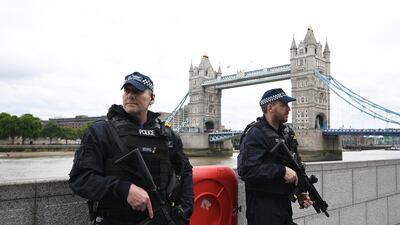MI5 and British police will reportedly get new powers to inform government officials about possible terrorist suspects before they are deemed dangerous enough to be under MI5 surveillance in an effort to stop attacks before the plans are finalised.
Security services will be granted the power under legislation being considered by the Home Office, The Sunday Times reported citing leaked government documents.
Home Secretary Amber Rudd is also considering longer prison terms for convicted terrorists and improving the detection of terrorist activity involving chemical, biological, nuclear and explosive material in the wake of the Salisbury, England poisoning of former spy Sergei Skripal and his daughter.
The newspaper says that more than 1,900 new staff will be recruited to beef up British security services under the plan.
_____________
Read more
Europe proposes new finance rules to target terrorists
_____________
In a move that could prove controversial, the strategy calls for more attention on “communities where the threat from terrorism and radicalisation is highest”, the newspaper reported. The government’s existing Prevent strategy has come under fire for focusing on young Muslims at risk of extremism.
The new powers are outlined in a 120-page draft counter-terrorism strategy due to be published in weeks, the newspaper reported citing leaked documents.
The documents also reveal that the UK considers ISIS a "significant" threat and Al Qaeda a "persistent threat". Northern Irish terrorism is now considered a "serious threat" and far-right extremists are a "growing threat".
The changes are being considered after mistakes allowed terrorists to commit attacks that killed 35 people in Manchester, at London Bridge and at Westminster in 2017.
Three of the five terrorists involved in the plots were among 23,000 extremists already known to security services. Only one was under active investigation by MI5 at the time of the attack however.

